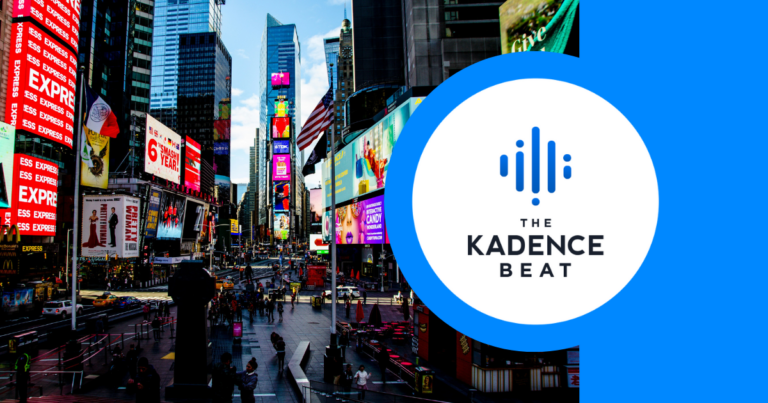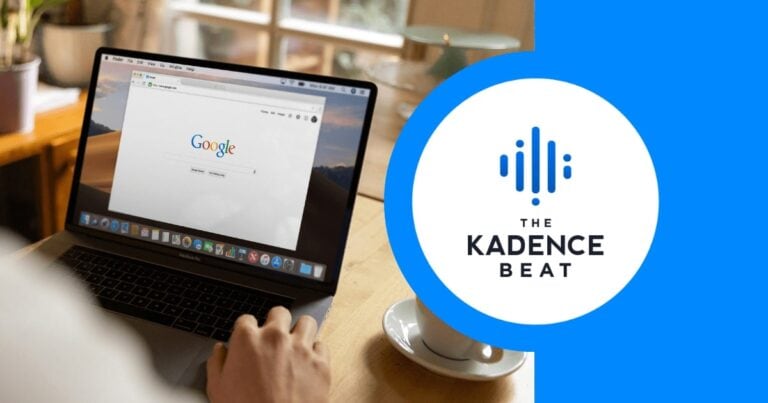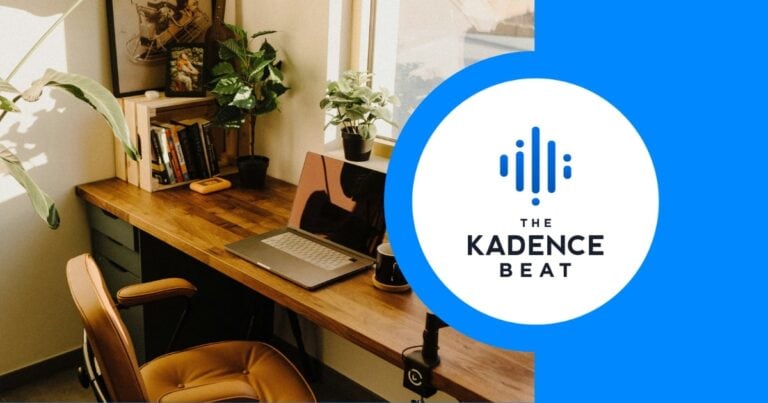Episode 17: The Benefits and Challenges of Remote Work
The Kadence team is entirely remote and works from home, the beach, coffee shops and various locations around the world. Remote work is a big part of freelancing, agency work, and many in the WordPress community have found ways to do remote work right. Ben, Hannah, and Kathy talk about their own unique remote work styles and what works for them, and how our remote work philosophy has actually helped create a unique community helping WordPress users create more effective sites. In this episode, we left in some of our “bloopers” as they were perfect illustrations of some of remote works challenges, and benefits. We hope this episode makes you laugh as much as it made us laugh.
Listen via the controls below, or add us to your favorite podcast app.
Timestamps & Links
- 0:00 Intro
- 1:24 Crazy places we’ve worked
- 4:31 Challenges and benefits of isolation
- 6:12 The challenges of being “always on”
- 9:14 The puppy is no longer asleep (blooper left in for comedy’s sake)
- 10:51 Workflow challenges
- 12:16 Moving locations to keep things interesting
- 13:18 Frozen video (blooper 2)
- 14:00 Frozen video segue into meditation and breathing (Wim Hof video)
- 15:30 Remote work helps work fit around our lives instead of lives around work
- 16:26 Setting work-life boundaries
- 18:10 Managing people in a remote work setting (Nathan Barry Twitter thread)
- 22:18 The unique blending of remote work and community at Kadence
- 23:36 What’s happening with Kadence Blocks upcoming release
- 25:41 Kadence Advanced/Power User Course (registration)
The puppy:
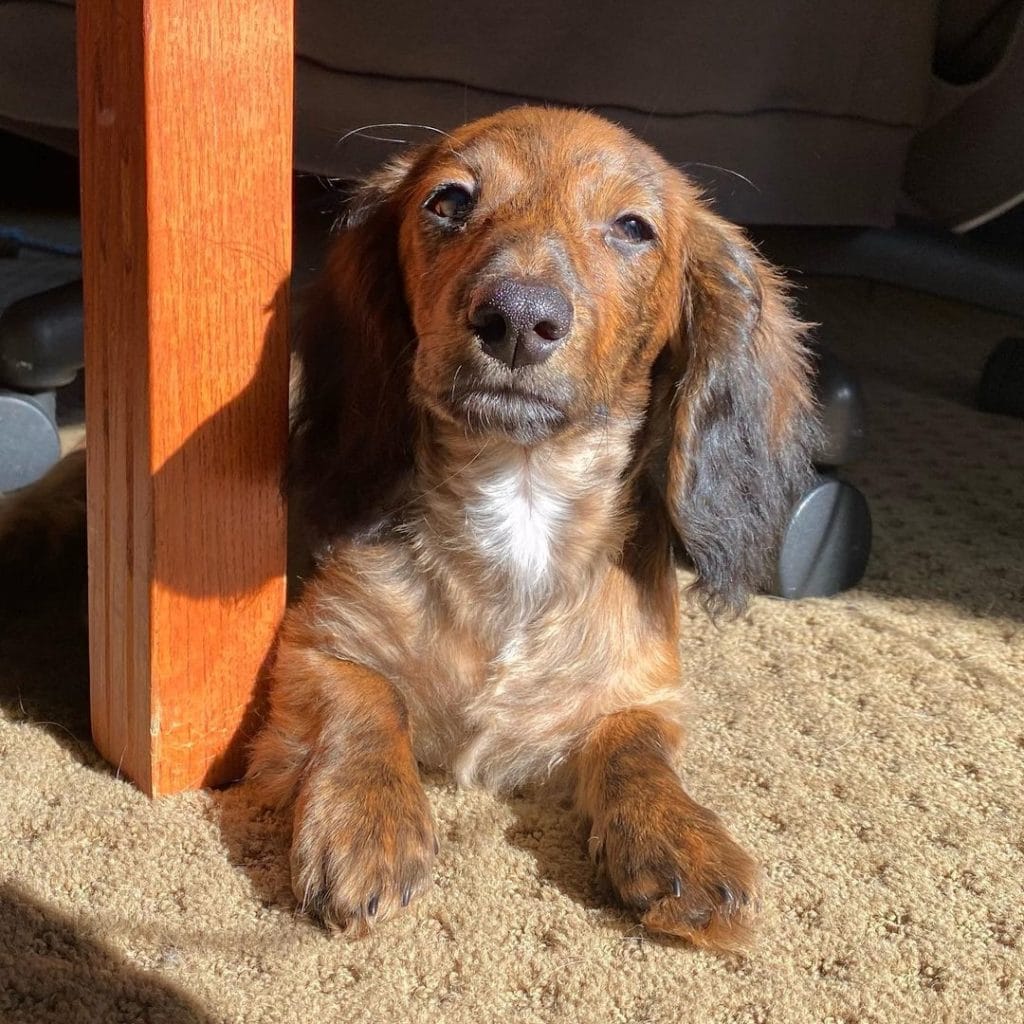
Transcript for Episode 17
Kathy: Welcome to another episode of the Kadence Beat. I am here with my now good friends because we’re on episode 17, so I’m gonna call you my good friends, Hannah Ritner and Ben Ritner, working together on the Kadence Project. This is the most fun I’ve had with WordPress for a very long time, so I am very excited to be here.
And today we’re gonna talk about one of these foundational things in WordPress and for people beyond WordPress since the pandemic: remote work. We’re all home, or at least not sitting in an office together. And that presents a lot of opportunities, but it also presents a lot of challenges. So today we’re gonna talk a little bit about some of our experiences with remote work and maybe how we deal with some of the challenges and also some stories of some of the fun things like where’s the craziest place that you’ve ever worked. Hannah, how you doing this morning?
Hannah: I’m doing good. Happy to be here. And I do feel like we’re close friends, Kathy, even though we’ve never actually met in person, which is devastating. And it’s because we all work remote from different states.
Kathy: It is kind of weird.
Hannah: I do feel like we’re close friends. It’s fun.
Kathy: I think it’s really cool that we share a common goal of really helping people do more with Kadence and also having fun with our work because life is too short to not have fun at work, in my opinion. So we have a good time.
Hannah: I absolutely agree.
Kathy: Ben, how are you doing today?
Ben: Doing good. Yep. I’m excited to talk about this. I think, we should probably start with what’s, what’s the most interesting place you have worked? And that just got me thinking, like I’ve worked, a couple different places. right outside of Clarence in South Africa was at a farm there. That was probably the most off the wall.
But I mean, I’ve worked in different places in Brazil. Worked in Dubai. Dubai’s Wild. That’s a really crazy city. but yeah, I think Africa, cuz the internet was so bad, it was just very slow going.
Kathy: Wow. That’s very cool. That’s, it’s so cool to be able to travel and be able to still get things done and help people. Hannah, you travel a lot and work too, don’t you?
Hannah: I do, yeah. I should at some point, count up how many countries I’ve worked in. It’s definitely over 20. But maybe close to 30. I can’t remember if I’ve shared this on this podcast before, but when Ben first hired me, I knew nothing about WordPress. I was just looking for an excuse to be able to work remote and travel.
And so I moved out to Montana and he taught me a lot of this stuff. And then I think a week into the job, I bought it one way ticket to Europe. And on that trip I traveled to 17 different countries. I was there for four and a half months and worked just as I went and. Yeah, I worked in so many places.
I mean, train stations, so many airports. Actually Megabus has WiFi on their bus, so I would work from the bus, taking the bus across Germany to Czech Republic or whatever. You just make it work. I have also worked in Africa and I can attest to the WiFi being very horrible.
That was one of the more frustrating work experiences cuz I would like get an answer written out and then I go to reply and walking around the compound trying to find wifi anywhere and it’s been, it’s been a lot of fun for sure.
Kathy: Wow, exciting. I don’t have any like crazy. Working someplace fun. Although just this week, Hannah, we had a meeting earlier this week and I was in a horse barn and you were… was it a mechanic’s office?
Hannah: A mechanic shop. Yeah.
Kathy: I’m swatting flies off of my face and you’ve got like mechanic stuff happening behind you.
But we still were able to focus on what needed to get done and still were able to focus on what customers needed and and put together some things in place to make things better for Kadence users. I thought that was just really cool that we were both able to like focus with all this craziness going on around us.
Hannah: Totally, and it’s fitting that it happened this week, as we’re having this podcast.
Kathy: yeah. Just this week Yeah, remote work. It’s obviously a benefit. With the pandemic that happened and everybody having to go remote, I think a lot of word pressers were in a position of being able to be like, okay, well not much is changing for me because a lot of people in WordPress do actually work remotely.
But a lot of other people had to come into that space, and some of the challenges of being in a remote position started to come to the forefront. The world might have contributed to that a lot too. Isolation, the mental health considerations of just being away from people, started to really come to the fore.
Do you guys ever feel like you’re super isolated when you’re remote working?
Hannah: Yes, absolutely. I’m a huge people person. I have to get out. I usually get out probably four times a week, and go to a coffee shop, and just being around people is so helpful for me. But yeah, it definitely gets isolating and boring, and just hard sometimes. Like I actually like meetings most of the time because it’s like, oh, I get to talk to people rather than you’re just honed in on your work. It gets pretty isolating.
Ben, I don’t know if you feel that way as much because you, you work in the dark basement by yourself and you’ve always done that as long as I’ve known you, so something makes me think you’re okay with that.
Ben: Yeah, I mean there is some. I’m definitely pretty focused. I get in a groove and I can let, like hours can go by, and I don’t really notice it. And I like that. I don’t like distraction. I really don’t like Slack and I mean, obviously like we work in a company that heavily uses Slack because we need to. But it’s also extremely distracting.
I would prefer like, give me silence and a cave and let me do my work. With that said, for myself, it’s a big deal if I get out, go for a walk get outside. It’s not necessarily people, obviously I’m married, I have four kids, I get home and it’s wild and crazy. I get some of that and friends too, but like for me it’s the walking away from work for a bit to be outside.
That’s so regenerating and probably similar to you where you just feel like, man, I’m like alive again when you’re around people. For me, it’s like I go outside and I’m like, oh yeah, I’m alive again.
Kathy: Do you feel this pressure of like always being on, like you’re getting Slack messages as soon as you wake up in the morning and as late as you going to sleep at night? Because we are like in this asynchronous world where we have people working all over the world. Is that a pressure that you have and how do you you manage that?
Ben: It’s definitely a pressure for me. Part of it is just my role in Kadence. Like that I’m still running a lot of things and making sure a lot of things happen and things happen around the clock, so I have to kind of be on. It’s part of the territory that I’m gonna get Slack messages at night. Especially cuz we have like a whole, you know, team that works throughout the night on support. So they’re gonna be messaging, Hey, is this a real issue or I need help here or whatever. Some of that is just part of the territory. There is a lot to say about learning how to turn it off and still being available for some of that, but learning how to turn it off and really focus on like who’s in front of you.
That’s a constant challenge. It’s not like I figured this out. Like I definitely would say that, I think my wife would say I’m pretty good at it. But that doesn’t mean it’s not a struggle sometimes. There’s days, everyone has days where you’re like, Man this day, man this day. And then there’s, time where you’re just like, you know, it was a good day and you shut it off and you went home, and that’s how it went. So I think some of that is a skill. I think if you have the opportunity to protect I think that’s huge. If you can, depending on your role, if you can shut it off, turn off the notifications, have that timer set or whatever.
I think that’s nice. I’ve heard of people having two different devices, their work device that’s connected to Slack and email and notifications and then their home device that doesn’t have any of that. I will say, there’s a lot to be said for giving yourself some head space before and after work, that like a traditional commute would’ve given people just to finish all those thought loops you had about work and get into the mode of coming home.
So like for remote workers, if that means you go for a walk at the end of your walk. I just feel like that’s a huge thing for me. I have a short walk to my house. I rent a basement out just a few doors down, which that walk is nice, but also just there’s a little bit of a routine as I leave of shutting things, things down and kind of this mental time of a big mental switch that I think is really helpful.
Kathy: Definitely a lot of what I hear and what I resonate there is it’s really important to know yourself, to know how you work, to know what works for you, and to set up work that works around what is important to you rather than trying to shoe yourself into a routine that you might even just be imagining works for a company or works for a client or the shoulds of how you’re supposed to work.
I think what remote work really does is opens up that opportunity for you to be very intentional in how you design your flow of work and your day. Hannah, do you, do you anything to kind of put that, put that in perspective?
Hannah: You like the flow of how I work.
Kathy: Yeah, the puppy is being really super annoying right now. God, he’s got chewing on cords. I’m sorry.
Hannah: Which is also a huge piece to work in remote. I can’t tell you how many meetings we’re in and people have their cats walking across the screen. Honestly, working from home was made me think I should really get a cat. I did have a dog, who passed away and I really miss her cuz she was a companion when they worked. But it’s funny in people’s pets when they also could be a distraction, which is just funny.
Kathy: Yeah, he’s chewing on a phone case right now, which is better than chewing on the cord. So that was, I’m sorry, I just didn’t want him to die on the podcast.
Ben: Please leave all of this in the podcast.
Hannah: yes. I feel the same.
Kathy: I was like, Do I put him, Do I put him upstairs for this podcast? Nah, he’s gonna sleep. Me thinking that should be the first thought in my mind that I maybe I should put him upstairs, but yeah, no, you should get a cat and a dog.
Hannah: Kathy has the cutest puppy. Oh my gosh. Milo. I love him. I don’t know him,
Kathy: he is very, very sweet and he’s so funny. And he, um, we play squeaky noises for him on YouTube and just on the phone and he just goes, oooh! He’s got the cutest howl.
Hannah: Oh my gosh.
Kathy: it is ridiculously cute. I gotta get a video of it. But yeah, he’s, uh, anyway.
Hannah: That’s amazing.
Kathy: That’s why I was like, Hey, Hannah, pitch, away. I can’t talk about this right now. My dog’s trying to kill himself on a cord.
Hannah: Oh my gosh, that’s so fun. Um, okay, so workflow for me is definitely an area that I struggle. I worked part-time for Kadence for a long time, and so it was easier for me to kind of get into a flow because I only had so many hours in the day. And it’d be like, Oh, I can focus for four hours or whatever.
But now that I’m like, Okay. Eight hour days, It’s been harder and so I’ve definitely need a lot more structure and, getting outside, Ben said it’s been huge, even just sitting outside and eating lunch and not like eating lunch while I’m working is a big deal. And. Going for a 10 minute walks or whatever, Just something else to kind of clear your head.
Or a lot of times I’ll go for even just a 30 minute run to just get some energy out and then come back and be able to focus again. But I’m still working on really finding structure in how I work and in workflow. I’ve been working remote for eight years, so you would think this would be something that I know how to do. But it takes like constant, diligence and just trying to figure out what works and what doesn’t work and what is best for me because for Ben and I, it’s completely different.
Like he can just lock in and be locked in for hours and my brain doesn’t work like that. So I actually do much better with distractions that kind of force me to focus like in a coffee shop it forces me to hone in on what I’m doing rather than when I’m at home or I’m like staring out the window and I’m like, What am I even thinking about?
Ben and I are just different in that way.
Ben: So different.
Hannah: Yeah.
Kathy: That is so wild.
Hannah: It’s funny. I’ll move around my house. Like I can’t sit in the same place all day. I think every meeting I’m in, I’m in a different room in my house or like just different position. Or I’ll like turn my computer a different way so that the sun’s sitting me differently or like, like I move a lot and that’s really helpful for me.
But for most people it’s not that way. So I think it’s, it’s important to find what works for you and there’s tons of blog posts and things out there so you can learn just different methods, but I think for everyone it’s gonna be different finding a productive workflow, that just fits your rhythm. But it’s funny cuz for Ben and I, it is totally opposite and it always has been.
Ben: Yeah.
Kathy: That’s so interesting. I find it just fascinating, I guess you use different parts of your brain for different types of work. At least that’s what I’ve noticed. Like I can’t write and listen to music, but if I’m doing something technical music really helps me. Sort of getting to know like what tasks you’re working on and providing an environment that supports that. I find it absolutely fascinating that a coffee shop actually helps you focus more.
Hannah: I’ve talked to other people who are that way too.
Kathy: Is Hannah Frozen for you, Ben.
Ben: Yeah, she is.
Hannah: Oh shoot.
Kathy: You’re frozen. I have to do a screen capture of that because you’re frozen, like you’re deep in meditation or prayer.
Hannah: Oh no.
Ben: Yeah.
Hannah: Maybe don’t.
Kathy: It’s hilarious. The focus.
Hannah: Am I still frozen?
Ben: No you’re not. Oh, you’re, you still are for her. That’s funny. She’s unfrozen for me now.
Kathy: Okay. That is so funny, .So when as we record this podcast, we can see each other, but we’ll just like publish the audio. But no, you were like this Hannah so.
Hannah: You know, and that just meditation is another thing that’s really good, like just unplugging for a bit, listening to a good song, or just breathing my boyfriend’s really into breathing exercises. If you guys ever heard of Wim Hof? There’s like this 10 minute guided breathing exercise that I’ll do is it’s actually really nice.
It just like clears your system and helps to relax.
Kathy: Does he do the ice bath thing?
Hannah: Um, he doesn’t, and actually I didn’t even know that he also did that, but he doesn’t, in this video, there’s like an 11 minute guided video. If you Google a Wim Hof breathing exercise, you’ll find it.
Kathy: Okay, I’ll do it.
Hannah: And you can hold your breath. He, he has you hold your breath and I’ve never been able to hold my breath for longer than like 30 seconds. I can hold my breath for a minute and a half, like when I do these exercises. It’s crazy.
Kathy: Cool. All right. Well that’s staying in the podcast too, cuz that’s fascinating. I think that’s really cool stuff. No, because I think breathing is like really, you can either breathe , to relax yourself. Like if you breathe in like for four and then you breathe out for eight, or I think it’s like four in, hold it for four and then out for eight.
And that’s like super relaxing. And then if you want to increase your energy, you breathe in for eight, hold, I guess for eight, and then out for four, like really fast. And that will like increase your energy. So I’m usually trying to calm myself down, not that I have any stress in my life or anything.
Hannah: Yeah. No stress.
Kathy: Yeah, no stress. It’s all good. I think that remote working is a positive because it is changing the way we think about how we work instead of making our lives fit around work. I think work then kind of shifts into a space where it fits around our lives.
it creates healthier people, but it has to be a conscious, intentional. Decision that you have to eventually just make. I love my work. I love how I work, but I also have a life and how does work fit in? If I want to write an email at eight o’clock at night, I can do that, but maybe I want to go out for coffee and sit and just be at 11:30 in the morning, like those kinds of decisions can work because you’re still getting the work done. The effort is still happening, but it’s not like this, Well, you only work nine to five. Do you find that you guys make decisions about how you balance work or how you fit life and work together?
Ben: For me, it’s so like, about my family and interacting with them. it would be different obviously in different situations. I intentionally leave the house so that the kids know, like dad’s at work, even though I’m like just two doors away and that helps a lot. When I’m home, I’m home and I’m not off limits or anything like that cause, for me, it’s much more like I have to turn it on and then shut it off as best I can versus like a more fluid. You know, I love the idea and I think like there will probably come a time in my life where like I could be a lot more fluid. Cuz some of my best, frankly my best working time is like 10:00 PM to 2:00 AM, I am extremely focused in, alert during that time.
And right now that doesn’t really work cuz I have to get up at six with the babies. So , I can’t really stay up till two and work as much as I would like to. but like I could see a point where I would like have a schedule that was very like, fluid where I would be like, I’m gonna work for four hours tonight, so I’m going to, be done after lunch and go, ride my bike or whatever.
Hannah: Yeah. I feel like for me, I’ve I’ve learned to be pretty good at studying boundaries with work. When I was working as a midwife or when I work as a midwife, There’s no such thing as boundaries. I mean, you have your phone on you all the time, and you could get called in at literally any point of any day no matter what you’re doing.
And so with this job, I was like, Okay, I can set boundaries and, and granted that my role isn’t Ben’s or even yours, Kathy, it’s not that it’s not important, but it’s not quite as critical If something goes wrong, they don’t call me, they call one of you. So I feel it’s a bit easier for me to set boundaries, but that is so important. Just being able to be, now I’m at work and now I’m not. Although I’ll take work a lot of places, like mechanics or whatever and just in order to do some, bring some normality to the day and make it so it’s less like clock and clock out.
Kathy: Now from a managing people perspective or if you’re growing a business and say you’re a freelancer and all of a sudden now you’re gonna be hiring people and you’re hiring people maybe on the other side of the world, or you’re hiring somebody in a different time zone, now you’re managing people remotely.
Are there specific challenges to managing people? And I guess this, question is more for you, Ben. Are there challenges in managing people in a remote environment?
Ben: Yeah, so people don’t know this. My role is kind of funky. I don’t actually have any management of people, but I lead the team. So there’s like direct managers over all the other employees, at Kadence. I think it’s an area where Kadence is really trying to figure out. And for that matter, Stellar as a whole is just trying to figure out how we do a lot of this stuff.
Cuz I think there are a lot of challenges to having remote workers in terms of how do we make work, culture work where people enjoy where they work and they’re making friends with their coworkers and they have a sense of belonging and a sense of meaning.
and then along with that, like the communication challenges that come and. How do we do all this stuff? There’s a lot of trust that has to be given from a leader side of like, I’m trusting that you’re doing what you can. And, that’s kind of crucial cuz if people feel like they’re not being trusted, then they’re gonna find somewhere else to go.
Like, it’s, it’s the most degrading thing to feel like people above you, don’t trust you. So there’s a lot to it and a lot that we’re even trying to figure out as part of a company inside of another company. I did think it was interesting. This got put on my radar today, and I’m not on Twitter ever, so it’s amazing that I would see this.
But, Nathan Barry, who runs Convert Kit, posted a thread on different ways in which he helps a remote team. And I thought it was a lot of really interesting stuff. I think one, there’s a lot of things there. if you are on a team, having retreats multiple times a year I think is really.
crucial, being able to connect face to face. I think asking questions that aren’t relevant to work of your employees slash your coworkers just really engaging with them as people and who they are. There’s a lot of stuff that it’s harder to do, harder to have those conversations in a remote environment where you get on a meeting call and you’re meeting about something and how do you also create some space for small talk and even just , what did you do this weekend?
And, what are you interested in hearing about people’s lives? I think it’s important that we share each other’s lives. Like we talk about it, we talk about, what’s going on, the challenges that we’re facing. On our own. And so, I think there’s so much work that we’re even trying to figure out.
We’re a team that went from essentially two to now something like 10 and the last year and a half. And so, really trying to think through, okay, what in the next year and a half, are we gonna be 20? And How do we create a culture, a work culture as remote workers that’s like fun to be in.
And so yeah, I would definitely recommend checking out Nathan Barry’s tweet and well his thread on that cuz I think it’s really interesting. His first idea is an internal podcast, which I think is also really interesting.
Kathy: Interesting. Well, we’ve had comments, from some of the support staff that we have that aren’t in our core meetings, that they listen to this podcast and it helps them feel more connected. So, hi you guys. Thank you for listening. That makes me feel happy that we’re not only doing this podcast to connect ourselves with the greatest Kadence community, but it helps our team too, um, understand sort of our philosophy.
On how we’re doing things. You touch upon so many different things that resonate with me. Trust obviously is incredibly important. You have to have trust in that. Trust needs to go both ways, the employer needs to trust the employee that they are doing what they say that they’re gonna do. But, the employee needs to trust the leadership and communication is a critical part of that.
Being able to communicate what the core mission of the team is, who it is that we’re trying to serve and what our values are. And basically by establishing all of those things that kind of trickles down into. All of the touch points that we have with our customers. So it’s really important to have that, those communication lines open throughout the organization, and trust.
Um, we are really lucky as a Kadence community because it almost feels a lot of the people in the Kadence community are a part of the organization. Like there’s a blurring of lines between people who. Working for the company and people who are using Kadence.
And then there’s all of these power users and people who help other people in the Kadence community. It’s something that I value and something that I want to make sure continues.
Hannah’s a huge part of that, making sure that we understand what our customers are doing, what they’re needing, what our power users, the people who are like really building businesses on top of Kadence and what they’re doing, with the products, and what their needs are and helping.
Everybody from the person who’s just installed Kadence Blocks for the very first time to the people who have been around since the beginning, and making sure that they know that they’re valued, that they feel that they’re valued, and that there’s a level of trust, not just within the organization, but externally.
I think Kadence Team is doing, and I’ve only been around for a year here, but I think we’re doing a lot of these things, right. You guys really set up a foundation. for that. So that trust goes throughout the community, not just the organization. So remote work ends up being a marketing thing as well.
Hannah: I think that’s great perspective. Yeah, I think that’s right on.
Kathy: Well, I guess I should ask… Ben? You showed our team internally what’s happening with Kadence Blocks and I think a few jaws hit the floor. It’s pretty exciting. I’m excited.
Do you wanna talk about any of it?
Ben: No. Mostly because I know it’s more about like, when is it coming? And like, let’s get on with this already. We’ve been talking about this for months, and it’s a project that will never end. So it’s just, we’re, we’re making a lot of progress to the point that we can have a little demo and show, here’s some of the things that we’re working on to make this really work right. it’s been an incredibly good exercise to sit down with, Modern Tribe is an agency that does high end development stuff, and to sit down with some of their designers and talk through the user interface for Kadence Blocks and how do we make this more intuitive. And that’s causing so much of like, okay, let’s redo how we do all of this while still giving the power of this is a design tool so you can do whatever you want. And so I think it’s coming up with some really exciting things and I think I’m getting, more and more excited to see this release go out. At the same time, understanding that, like I don’t have a, I don’t have a date yet and I wish I did.
I wish we were closer. There’s still a lot of just things we want to get done and then, this huge rewrite of Kadence Blocks will be able to get to like beta testing. But, it is really exciting in terms of just… I think one thing to make clear: this is full backward compatibility.
You won’t hit any issues with any of your content or anything like that. It’s not about a whole bunch of new blocks. It’s literally like, how do we make our blocks better and easier to use? And I think we’ve found some ways to do that, to make it a lot more intuitive.
Kathy: It’s very exciting. I am thrilled that this is coming out, is going to make a lot of people’s lives very easy. Thank you everybody out there for your patience and not pestering us too much about it., it is going to make your lives easier and it’s, well, it’s going to be worth the wait. So don’t stop building.
keep building what you’re doing. Keep doing what you’re doing. This is just gonna come in like ray of sunshine, it’s gonna be great. , . We do have an advanced users, a power users course. Coming up at the end of October, you have to be a Kadence customer or an iThemes member, to participate with this, but it’s going to be a great course. Ben’s gonna lead this for a couple of days.
Hannah and I will be hanging around in the wings answering questions as well, but we have a great course planned for you. If you are a customer, watch your email for an invite for that. If you are not a customer, now might be the time. Get this in your hands now and then you can hit the ground running with some power user tips straight from Ben, the founder and lead developer for Kadence.
So put that on your radar. It’s October 25th and 26th. And with that, I don’t know so many distractions we had, but I think we had a fun episode. What do you think?
Ben: Yeah.
Hannah: It was fitting.
Kathy: Maybe I’ll post a picture of the puppy as a apology for all of that.
Hannah: Oh my gosh. Everyone needs to see. He’s so cute.
Kathy: He’s ridiculously cute. Oh, now, now he’s, now he’s quiet. Now it’s nap time, now that we’re done. Thanks everybody for listening. And if you are not subscribed to the Kadence Beat Podcast, please do subscribe. Thanks for listening. We’ll talk to you next time.
Create Your Website With KadenceWP Today!
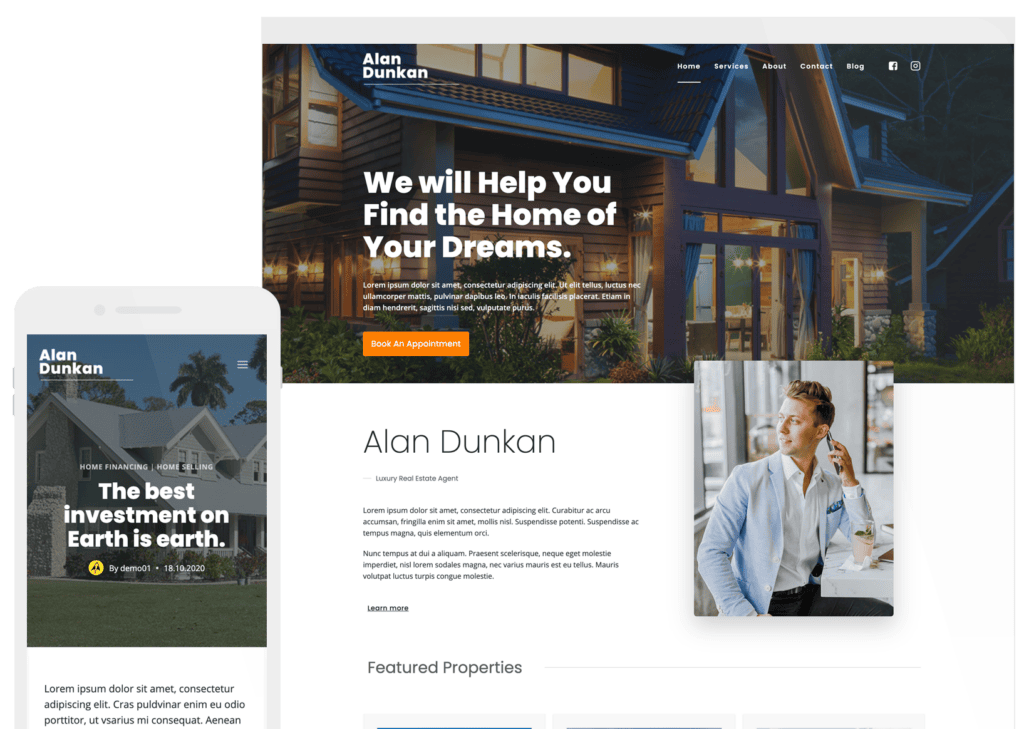
Written by Kathy Zant
Kathy is a writer and speaker who helps businesses and people thrive. She creates some of the best content and tutorials about how to get more out of technology, marketing how-tos that help you grow your business, reports on security issues you need to know as they occur, and gives you all the tutorials to stay ahead and secure your life and business.
By Kathy Zant
Kathy is a writer and speaker who helps businesses and people thrive. She creates some of the best content and tutorials about how to get more out of technology, marketing how-tos that help you grow your business, reports on security issues you need to know as they occur, and gives you all the tutorials to stay ahead and secure your life and business.
Updated July 22, 2024







